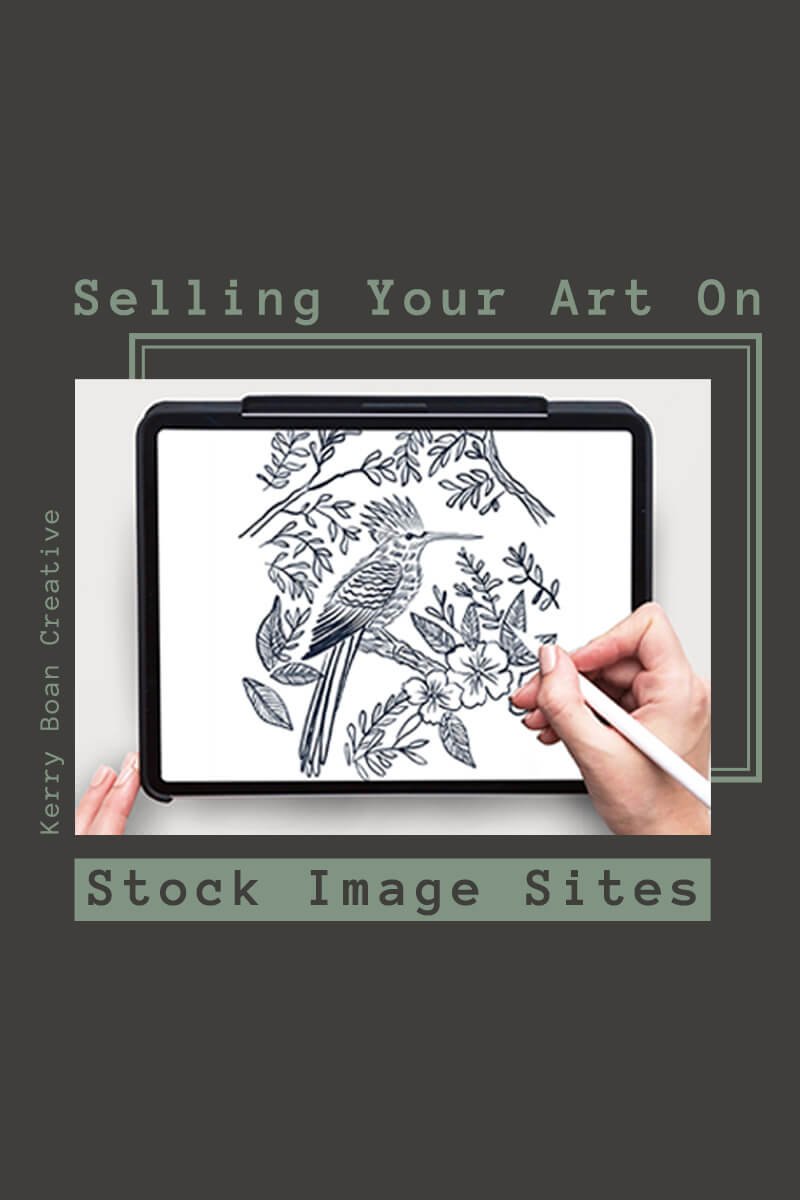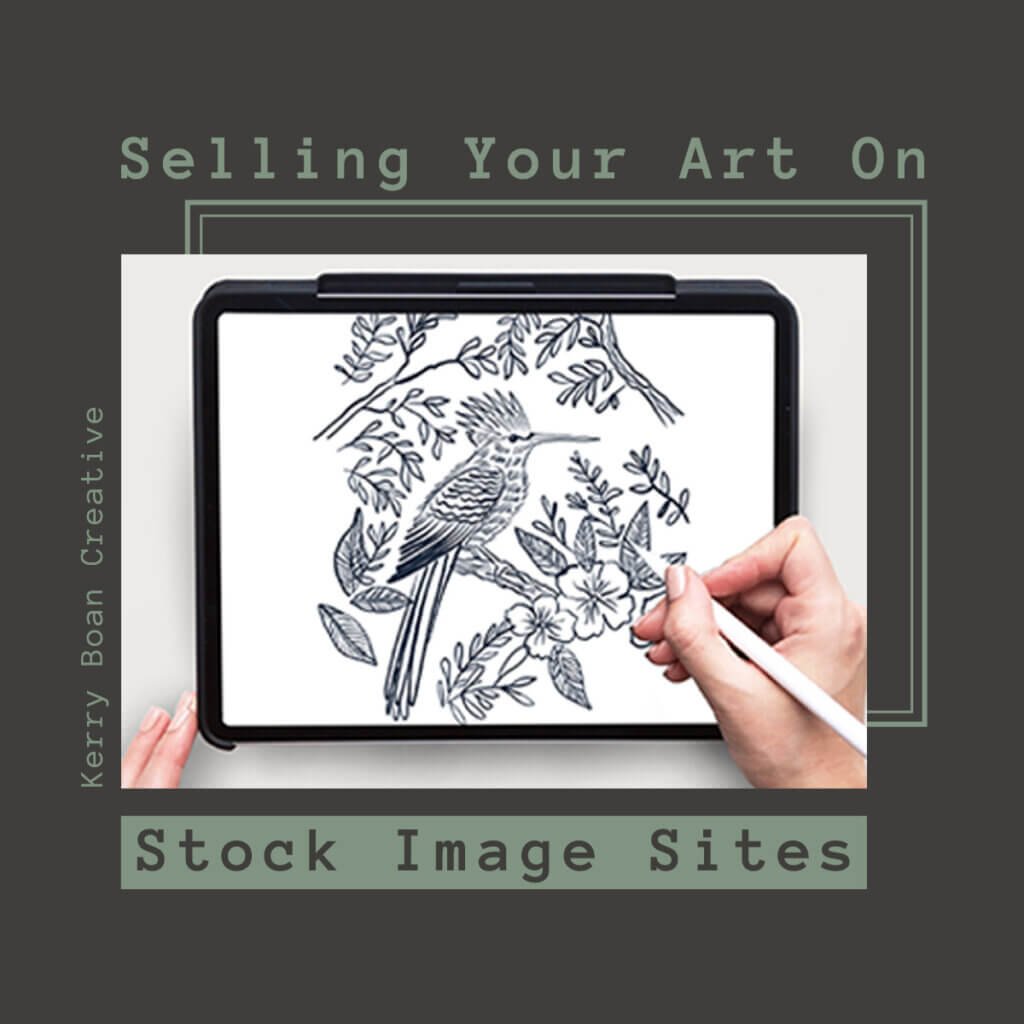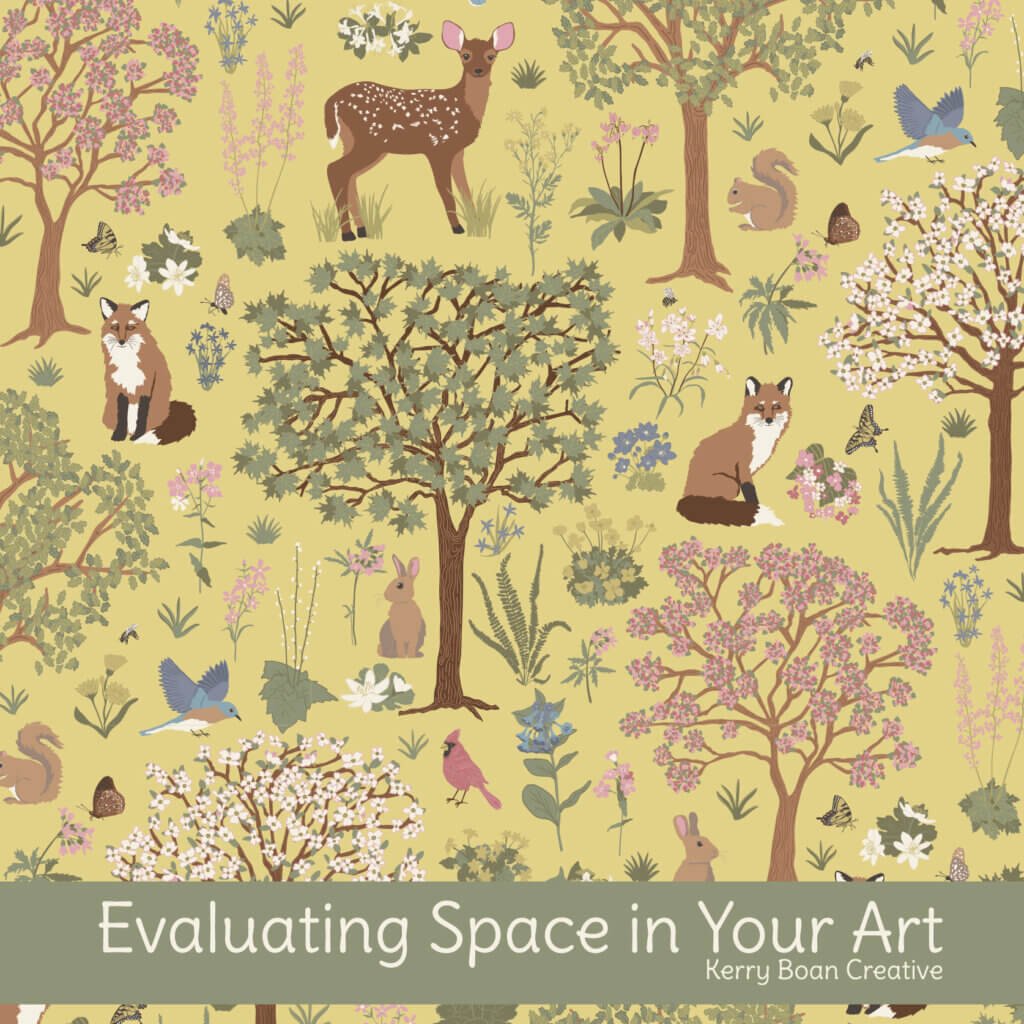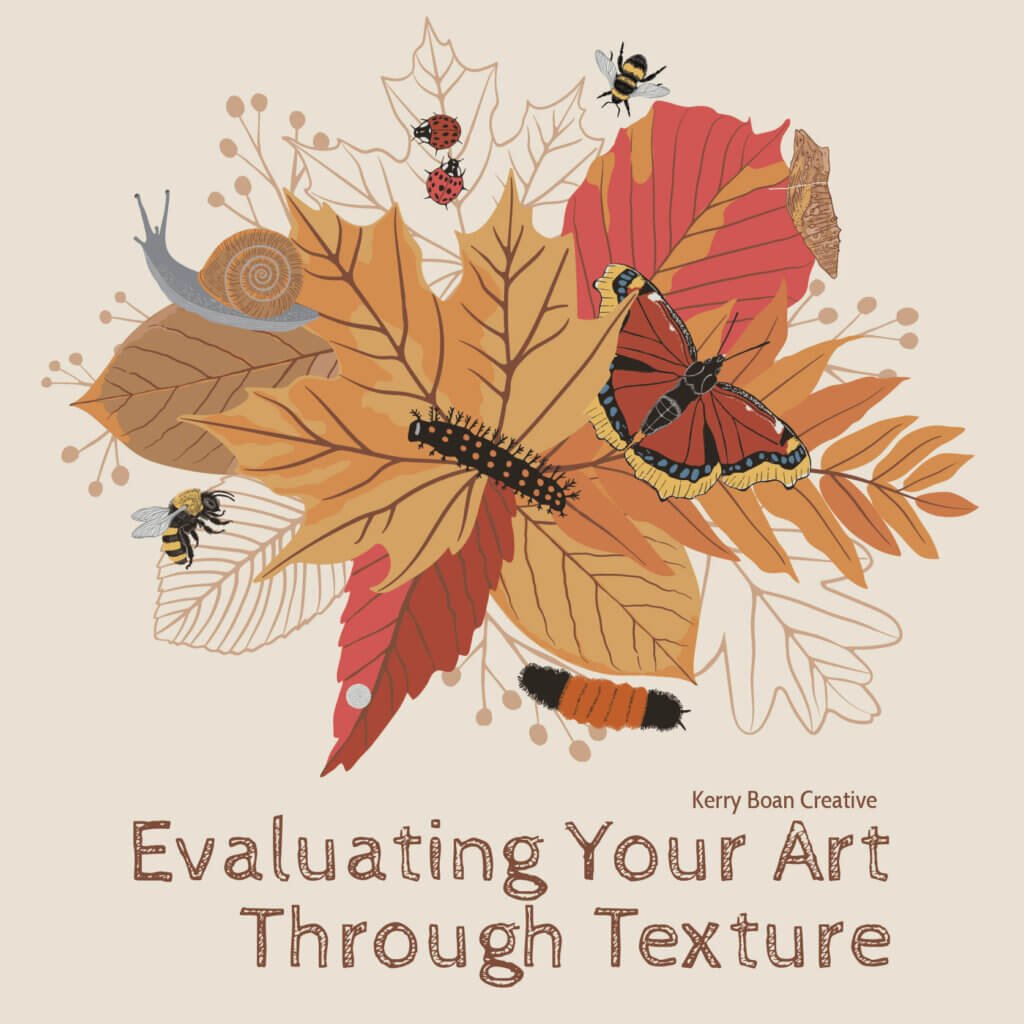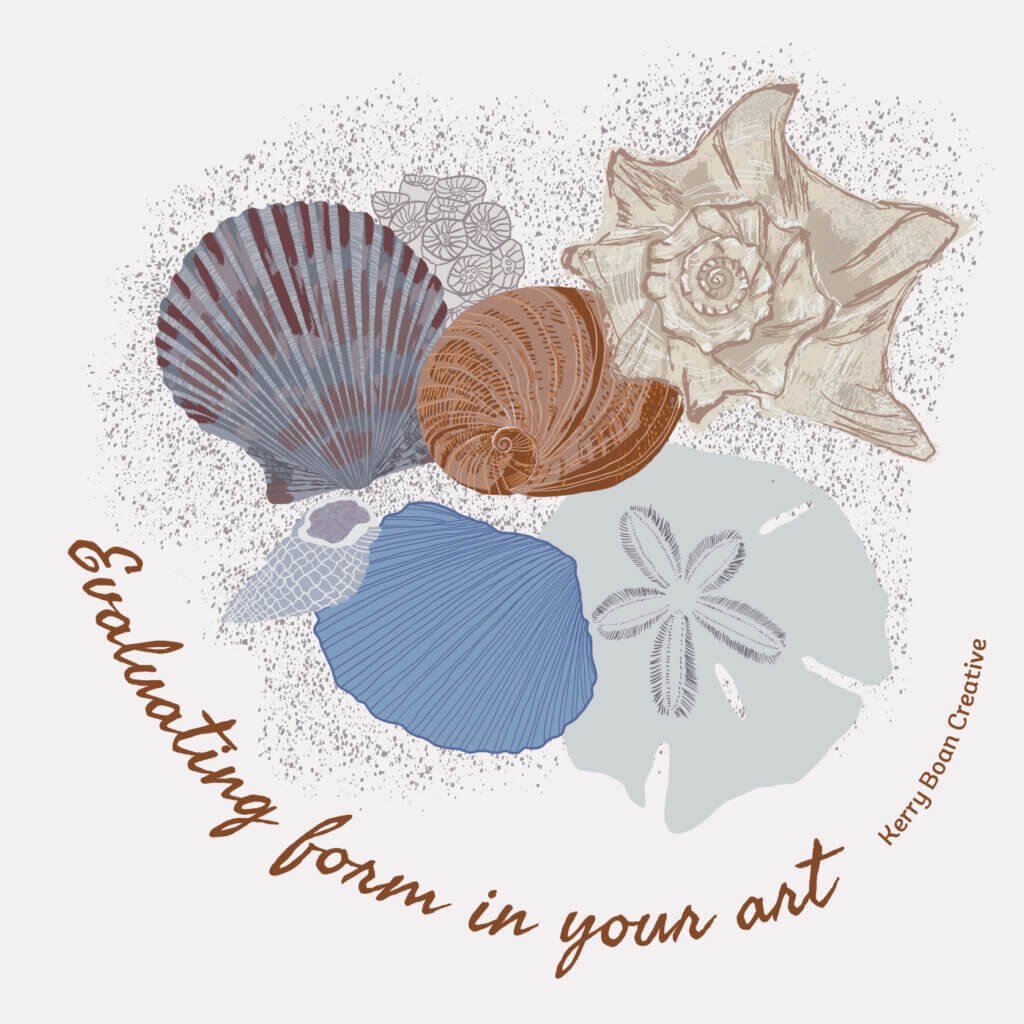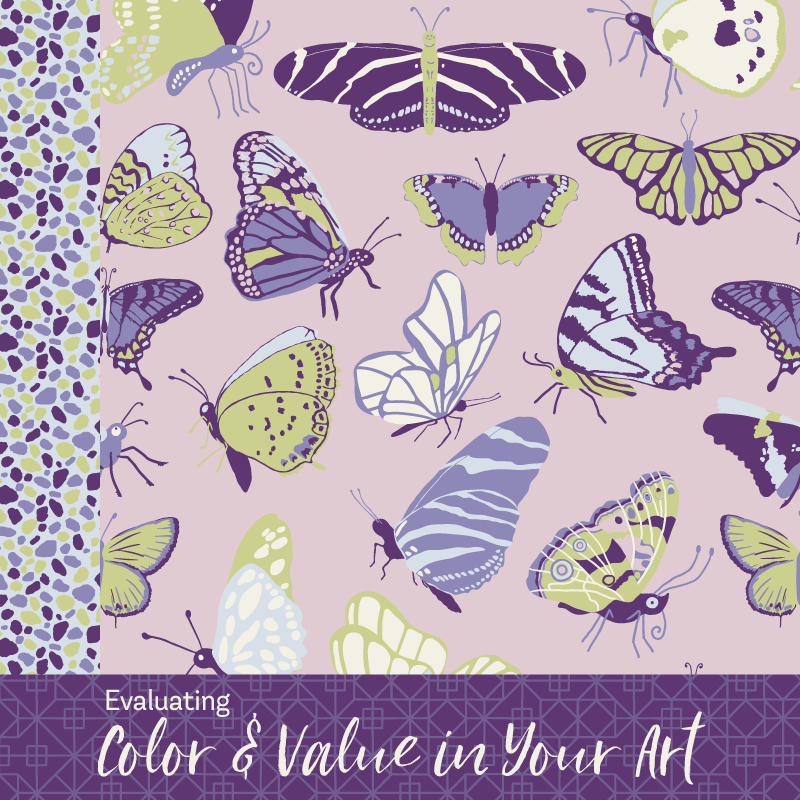There are many ways to sell or license your art to earn money as an artist and illustrator. When starting out, the options can feel daunting and confusing. If you’re like me, you may not have made much money yet and don’t know what you’ll like, dislike, or prefer to avoid altogether. Unless you’re “all in” on a single approach to monetizing your work, experimenting can help you discover which options best suit you and your goals.
Personally, I’m interested in earning money through multiple income streams, so I want to try a bit of everything to see what sticks, what I enjoy, and what doesn’t work for me.
In this series of blog posts, I’ll share some research on different ways to monetize art. In this post, I’ll consider whether selling or licensing art on stock image sites like Adobe Stock or iStock, and pattern sites like Pattern Designs or Pattern Bank, is worthwhile.
Some Questions to Ask
- Do they require exclusivity? Exclusivity affects whether you can offer your art on multiple sites. For example, Pattern Bank requires exclusivity, meaning when you upload a pattern there, you cannot offer it on any other site or platform—ever—including Spoonflower, other stock image sites, Etsy, or other licensing markets. Decide if exclusivity is a deal breaker for you.
- Usage Rights: On most stock image sites, you retain copyright but give up usage rights, meaning you have no control over who purchases your design or how it’s used. Ask yourself if this is acceptable.
- What happens to the art if you remove it or quit the site?
- Royalties: How much will you make per sale?
- Attribution: Will you be credited for your work?
- Licensing Terms: Will you have a say in how much your work is sublicensed for?
Some of the Pros to Think About
- Passive Income Potential: Once uploaded, your art can generate income over time with minimal ongoing effort, building up passive revenue with each sale.
- Exposure: Stock sites have a broad audience, allowing you to reach new buyers and clients who might not have found you otherwise.
- Portfolio Building: These platforms serve as a portfolio space, showcasing your work and potentially attracting freelance opportunities or licensing deals.
- Creative Freedom: You can create and upload pieces that reflect your style and interests, exploring your creativity without client constraints.
- Market Insights: Many sites provide data on trending images, helping you refine your work and understand market needs.
- Easy Submission Process: Most platforms have straightforward submission processes, making it relatively easy to get started.
- Feedback and Validation: Seeing your work accepted and purchased by others can provide valuable feedback and affirmation of your skills.
- Brand Building: Consistently submitting can help establish a personal brand, with recognition and loyalty among buyers who follow your style.
- Flexibility: You control when and how much to upload, allowing you to manage your time effectively.
Some of the Cons to Think About
While stock sites offer benefits, there are several potential downsides:
- Low Pay Rates: Many sites pay on commission, which can result in low earnings per sale. Average payouts may be lower than what you could earn through direct sales or licensing.
- High Competition: Stock sites are crowded with contributors, so your work may get lost among thousands of others, especially if it doesn’t align with current trends.
- Lack of Control: Once uploaded, you often relinquish control over usage, pricing, licensing terms, and where your images are featured.
- Exclusivity Issues: Some stock sites require exclusivity, limiting your income potential if your work gains popularity.
- AI Training: Your artwork may be used to train AI (artificial intelligence) programs.
- Limited Exposure for Unique Styles: If your style is niche, it may not resonate with the broader stock image market, leading to fewer downloads and revenue.
- Time Investment: Preparing work for submission, including editing, tagging, and writing descriptions, can be time-consuming and detract from creating new art.
- Market Saturation: Certain categories can become oversaturated, reducing the likelihood of your work being seen or purchased.
- Rejection Rates: Many stock sites have strict submission guidelines, and rejection is common. This can be discouraging and may require adjustments to your work.
- Limited Brand Building: Relying on stock sites for income may detract from building your personal brand, as buyers might associate your work more with the platform than with you.
Weighing these factors carefully can help you decide whether stock image sites align with your goals and artistic vision. If you choose to go this route, consider it one of many avenues to explore in your overall business strategy.
After doing some research, I plan to submit my work to a few different stock image sites to get a “lay of the land,” so to speak. I’ll post updates in future blog posts, sharing my progress and any new insights I gain from the experience.
